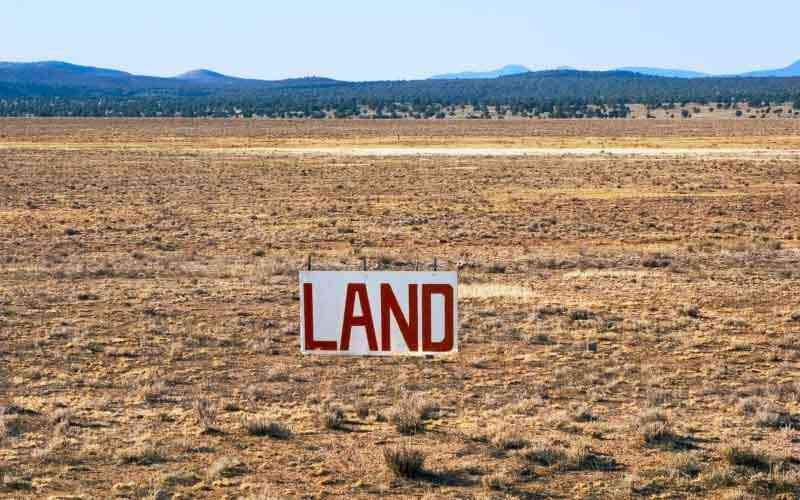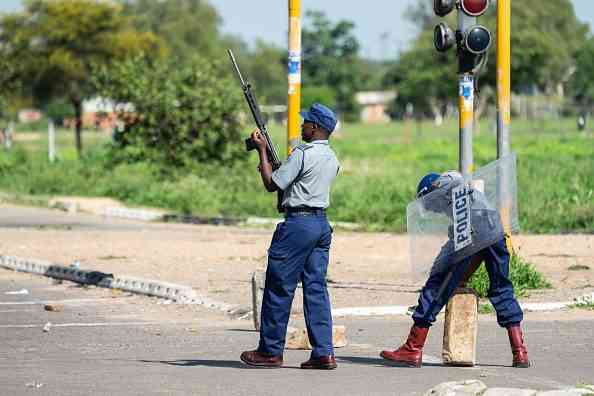
THE ruling Zanu PF party and government officials stand accused of selling land earmarked for the Robert Gabriel Mugabe International Airport expansion to unsuspecting individuals.
The allegations were made by Presidential Affairs and Devolution secretary Tafadzwa Muguti, who said the individuals claim to have the support of the country’s leaders, including President Emmerson Mnangagwa and his deputies Kembo Mohadi and Constantino Chiwenga.
He said land barons illegally occupied more than 140 sites across Harare as of last month, including the one earmarked for airport expansion.
“The President and the government will not stand aside and watch people enrich themselves using the name of our principals and the name of the party at large,” Muguti said.
“And we have also noticed that the same individuals have now invaded the yellow and red zones of the (RGM) International Airport.
“We do not care what position you hold in the party, we do not care what position you hold in government, as long as you are committing crimes abusing your office and abusing the name of the President and the Vice-Presidents, please pack your things and vacate immediately because this matter is not a civil matter, it is a security matter, it is a criminal matter and we’ll deal with it decisively.”
Why do we feel that these are empty threats?
Zimbabwe is busy copying China’s model of governance, but very wrongly executing it.
- Mavhunga puts DeMbare into Chibuku quarterfinals
- The brains behind Matavire’s immortalisation
- Bulls to charge into Zimbabwe gold stocks
- Ndiraya concerned as goals dry up
Keep Reading
Zimbabweans — and outside observers — are likely to view the government’s tough rhetoric as “empty threats,” rather than a realistic signal that those responsible will be held to account.
Many reasons can be put forward to justify the assertion that the threats ring hollow.
Entrenched impunity and past patterns where over the years, allegations of elite corruption and land grab have gone unresolved or attracted token punishment.
When powerful actors are repeatedly accused but not prosecuted, public expectation erodes.
There is also the issues of selective enforcement and politicisation.
Anti‑corruption actions in Zimbabwe have often targeted political rivals or been used as intra‑elite leverage rather than applied impartially.
If enforcement appears selective, statements are perceived as political theatre.
Patronage networks and elite protection are other stumbling blocks.
Land barons frequently operate within patronage systems tied to party structures, security services or senior officials.
When the beneficiaries are connected to power, investigations stall or are diluted.
Weak and politicised institutions are another factor.
Law enforcement, prosecution services and the Judiciary are perceived by many as lacking autonomy.
Without independent investigators and impartial courts, high‑level accountability is unlikely.
Incentives for delays and cover‑ups also throw spanners in the works.
Investigations that are slow, opaque or accompanied by contradictory statements create space for evidence to disappear, witnesses to be intimidated and deals to be struck behind closed doors.
There is also the issue of mixed messaging from leadership.
Strong public rhetoric accompanied by assurances of protection for some individuals or by conflicting statements from different parts of government, undermines credibility.
Also, confiscating land or prosecuting well‑connected actors risks destabilisation of political coalitions or alienation of economic actors the regime depends on, so rulers often prefer containment to full exposure, lest they incur economic or political costs.
The other thing is lack of independent media access and civil‑society pressure.
When journalists and civil society face restrictions, little credible, sustained exposures reach the public and international actors, reducing pressure for accountability.
Transparent investigations led by independent bodies (not party commissions); arrests and prosecutions that include mid‑ and high‑level suspects with verifiable evidence presented in court; visible asset freezes or restitution action where appropriate; consistent follow‑through across different cases, regardless of party rank or office held; and open sharing of investigation results with independent media and civil‑society monitors can help to bring sanity to the land issue.
Given Zimbabwe’s recent history of elite impunity, patronage and institutional weaknesses, it is reasonable to view this kind of strong rhetoric with scepticism unless it is backed by transparent, impartial action that produces verifiable results.
Without independent investigation and concrete legal steps that include prosecution and asset recovery, such statements are likely to be treated as symbolic or aimed primarily at public reassurance rather than genuine enforcement.






